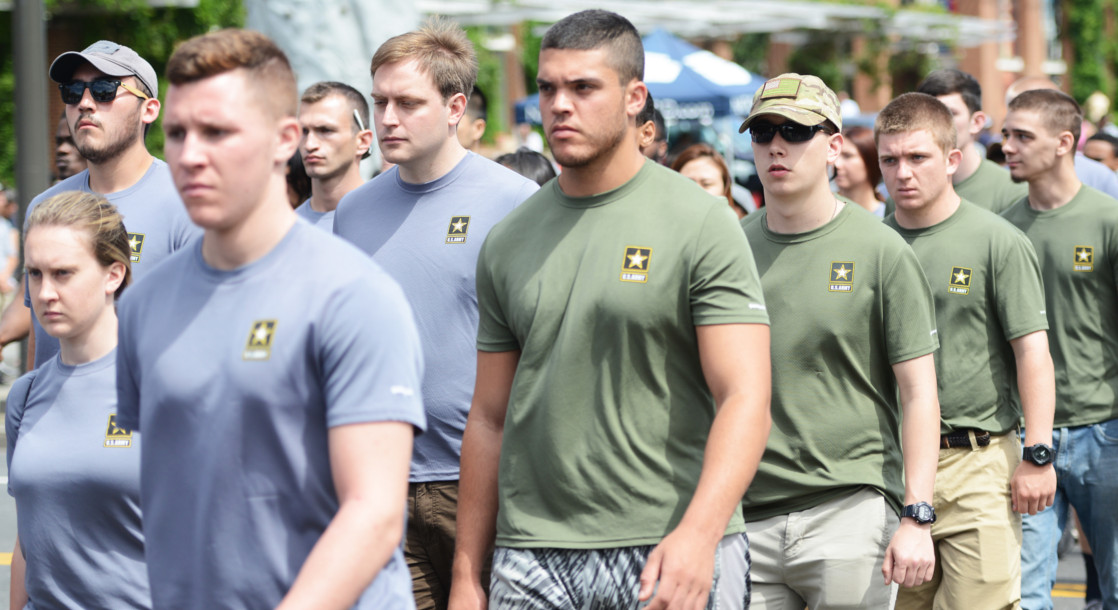The Trump administration has ordered one of the largest expansions of the U.S. military in recent history, leaving Army recruiters struggling to reach their goal of adding 80,000 new troops. In order to meet this demand, recruiters are lowering the standards for some applicants, offering hundreds of millions of dollars in bonuses, and granting waivers for former cannabis users. For the fiscal year 2017, the Army spent $424 million on bonuses for new recruits, up from $284 million in the previous year, and drastically higher than the $8.2 million in bonuses offered under the Obama administration in 2014.
Drug use is prohibited in the military, and applicants who have admitted to cannabis use have traditionally been prohibited from joining the Army. Granting waivers to recruits who may have occasionally used cannabis in the past can allow the service to add more recruits without needing to offer as many bonuses, according to Beth Asch, a recruiting expert for the RAND Corp. In the current fiscal year, 506 waivers were granted, up from 191 the previous year.
Maj. Gen. Jeffery Snow, head of the Army's recruiting command, said that the increase in waivers was also a reflection of the legal status of cannabis in several states. “The big thing we’re looking for is a pattern of misconduct where they’re going to have a problem with authority,” he said. “Smoking marijuana in an isolated incident as a teenager is not a pattern of misconduct.” Recruits who receive these waivers must vow not to use cannabis again.
The Army has also increased the number of recruits who scored in the lower third on aptitude tests, known as Category Four applicants, to enter the service. Out of the 69,000 new recruits made in the fiscal year of 2017, 1.9% were Category Four, up from 0.6% in 2016. Accepting more of these applicants during the winter and spring, the toughest months for recruiting, has helped the armed service fill its demand, Snow said.











